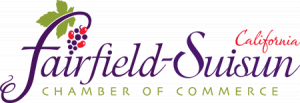When the Market Slows, Your Website Should Hustle Harder
The economy doesn’t always move in straight lines. When it dips, small businesses feel the tremors fast—and deep. Sales shrink, leads thin out, and customers grow cautious. But downturns don’t need to spell retreat. Instead, they call for smarter, scrappier strategy. A company’s website isn’t just a digital storefront—it’s the most controllable, customizable, and cost-effective asset a small business has. If used right, it can be a growth engine even when everything else is pulling back. The right web tactics don’t require enormous budgets, just clear priorities, focused energy, and a little creative nerve.
Put Clarity to Work on the Homepage
During economic uncertainty, confused visitors bounce fast. A homepage stuffed with marketing jargon or endless carousels doesn’t calm anyone’s nerves—it overwhelms them. Businesses should treat their homepage like a handshake: firm, friendly, and crystal clear about what’s being offered. A prominent, benefit-focused headline is essential, paired with one clear call-to-action that directs visitors where they’re most likely to engage. Reducing friction in the first five seconds can be the difference between a lead gained and a sale lost.
Get Help That Doesn’t Break the Bank
Bringing on a web designer during a lean period might sound like a luxury, but it can actually be a savvy move—especially when working with someone affordable who understands small business priorities. A skilled designer doesn’t just make a site prettier; they help clarify calls to action, tighten the user experience, and spotlight your most valuable offerings. When discussing design concepts or revisions, sharing visuals is key—so if you're sending over reference images, you may want to convert JPG files into PDFs to make them easier to email while preserving the image's quality. For a tool that makes this step simple, check this out.
Double Down on Your Core Pages
When budgets tighten, so should focus. Instead of spreading effort across dozens of pages, a smarter approach is to strengthen the ones that truly drive revenue. These include service pages, product pages, and whatever generates contact form submissions or phone calls. Each of these should be reviewed for relevance, simplicity, and clarity. Remove fluff, break up large paragraphs, and answer questions real customers actually ask—especially those that surface during tighter times, like cost, value, or guarantees. A leaner, more honest page is far more compelling than a bloated one.
Lean Into Local Search Behavior
People don’t stop buying in a downturn—they just become more particular about who they buy from. Small businesses with a local focus should lean hard into location-based optimization. This means building out pages for specific service areas, updating Google Business listings thoroughly, and earning reviews that mention relevant services or experiences. Including hours, safety policies, and even customer testimonials from recent months can help build trust. In uncertain times, familiarity and proximity matter more than ever.
Offer Fewer Choices, but Clearer Ones
Choice is a double-edged sword, especially when people are feeling cautious. Too many product or service options can paralyze rather than persuade. Smart small businesses simplify their offerings—not by removing valuable services, but by bundling them, prioritizing top sellers, or offering “starter packages” that lower the barrier to entry. When a site makes it easier to choose, people are more likely to commit. Every extra click or unclear package adds mental cost; trimming them helps customers decide faster and feel better about it.
Use Honest Language, Not Hype
In tougher economic seasons, buyers develop sharper nonsense filters. Exaggerated promises or clickbait-style headlines don’t just fall flat—they actively repel. Businesses that show vulnerability, experience, and empathy tend to stand out. That means writing web copy that speaks directly to common concerns, such as budget, time, or results, without sugarcoating. Phrases like “fair pricing,” “no contracts,” or “flexible options” can go further than tired superlatives. A site that sounds like a human and not a slogan generator is more likely to earn trust—and loyalty.
The hardest thing about slow markets is the temptation to freeze. But paralysis isn’t a strategy. For small businesses, the website remains the most responsive tool available—able to pivot messaging, shift focus, and speak directly to the moment. It doesn’t require a massive ad budget or a design agency on retainer. What it does require is attention, intention, and a bit of courage to say what others won’t. In a downturn, the businesses that keep showing up—and keep improving their message—are the ones most likely to come out ahead when things rebound.
Join the Fairfield-Suisun Chamber of Commerce to connect with local businesses, enhance your network, and drive economic growth in Solano County!

